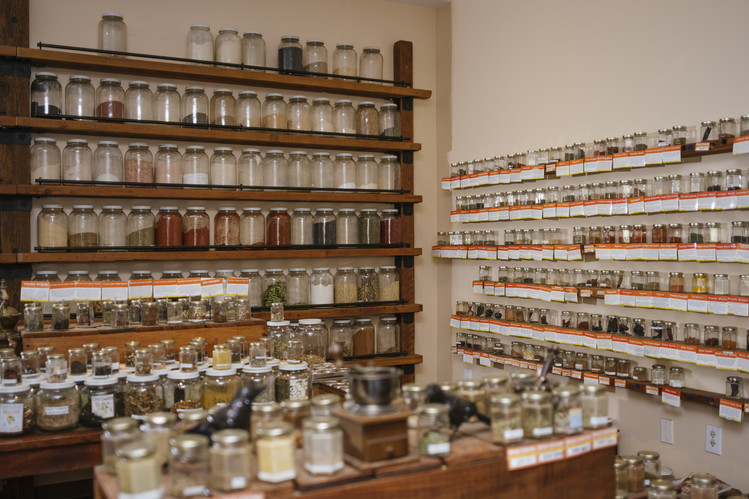A Modern Spice Merchant Requires Calm at Customs
- THE WALL STREET JOURNAL
- Dec 30, 2016
- 3 min read
WHAT'S IN YOUR BAG?
By HILARY POTKEWITZ
Peter Bahlawanian understands why his luggage could raise eyebrows. It’s full of small plastic baggies, an electronic scale and packages of white powder and rock crystals. “I know it looks bad, believe me,” he says.
If he’s on his way back from Europe, the white stuff will be fleur de sel or Cyprus flake sea salt. From South America, it will be slightly pink Peruvian salt. Sometimes the powder will be red, (paprika), yellow (turmeric) or brown (cumin).
“When I first started, customs agents had a field day with my bags,” the 44-year-old says. “Now they know me as the guy who brings in spices.”
Mr. Bahlawanian is owner and master blender of Spice Station, a small chain of gourmet spice shops in Los Angeles and Montreal. He opened his first store in L.A.’s Silver Lake neighborhood in 2009. The two shops in his native Montreal came later.
Mr. Bahlawanian regularly shuttles inventory between the two cities and travels overseas on spice-buying trips.
Regardless of the journey, he packs no more than two days’ worth of clothing, preferring to leave space for merchandise.
His work tools go in a small duffel that he carries over his shoulder. Along with the portable scale, he brings a mortar and pestle, and metal scoops for bulk spices. “I’d rather use my own. That way I know they’re clean and there will be no flavor contamination,” he says.
He uses thick plastic bags that seal in most of the heavy scents and plastic gloves to handle chili peppers—to avoid burning himself with a careless rub of the eye. Lightproof containers protect vanilla beans. “The sun dries them out, and you want the pods to be a little plump and juicy,” he says.
Visiting the farmers and suppliers he works with is important, because he wants to be able to tell his customers that he’s “seen the operation, it’s clean, they don’t have kids working there,” he says.
Mr. Bahlawanian started learning about spices as a child in Montreal. His parents are from Lebanon, members of the Armenian diaspora from southern Turkey. Family meals usually revolved around traditional recipes. “I grew up in a house with two Armenian grandmothers who loved to cook. I watched and I smelled and I learned,” he says.
He moved to Los Angeles in 1994 to work in the music industry. When he started cooking for himself, he grew frustrated searching for pantry staples like Aleppo pepper or urfa biber, a Turkish chili.
Soon he found himself shopping for spices while on vacation. During Caribbean getaways, he would skip beach days to hunt for vanilla, allspice and nutmeg. On visits to see family in Lebanon, he would zip over borders into Syria or Turkey to stock up on various peppers.
He started the Spice Station with about 120 items on the shelves. Now he sells more than 550 spices and teas.
The last time Mr. Bahlawanian tried to enter Syria, in 2010, he was turned away at the border. “It was probably for the best,” he says, considering the violence that soon followed.
He discovered growers in Lebanon producing items like Aleppo pepper, sumac and mint. “The Lebanese make saffron now! It’s not as good as Spanish or Persian, but it competes with the Moroccan one, for sure,” he says.
His current obsession is finding a reliable supplier of the Carolina reaper—a hybrid of the five-alarm ghost pepper—named the hottest chili pepper in the world in 2013.
“Chilies were always my favorite. It’s what drives me,” he says.














Comments